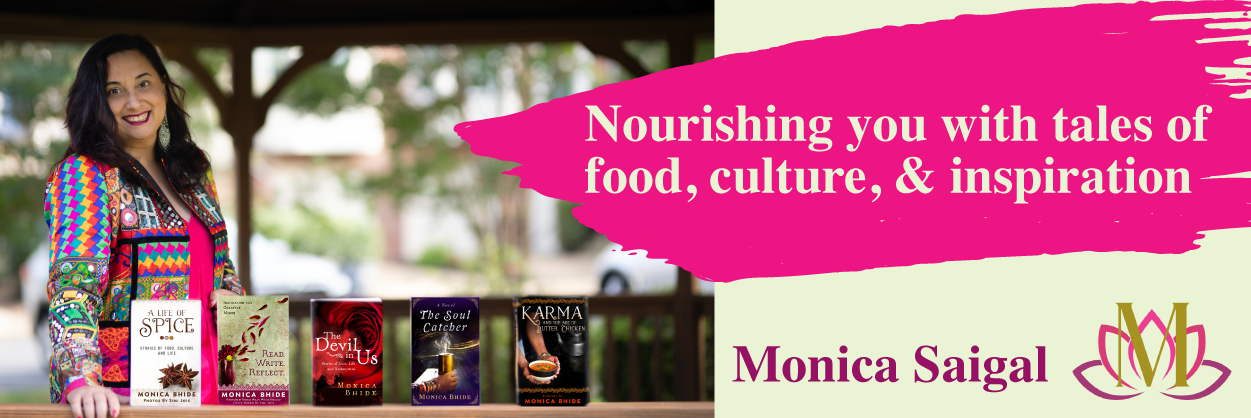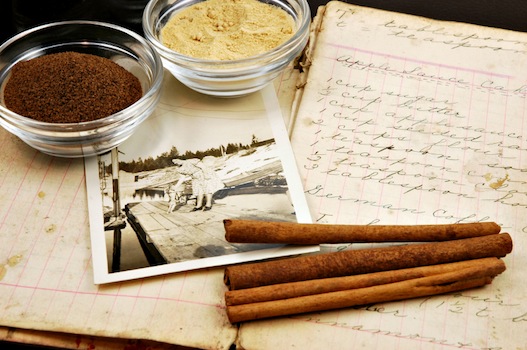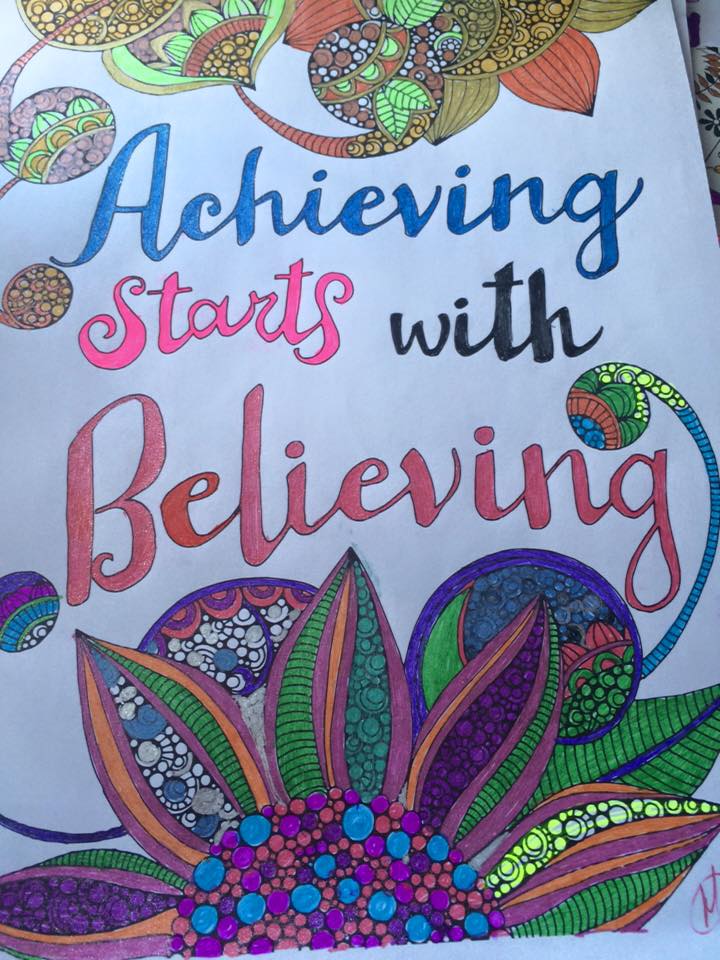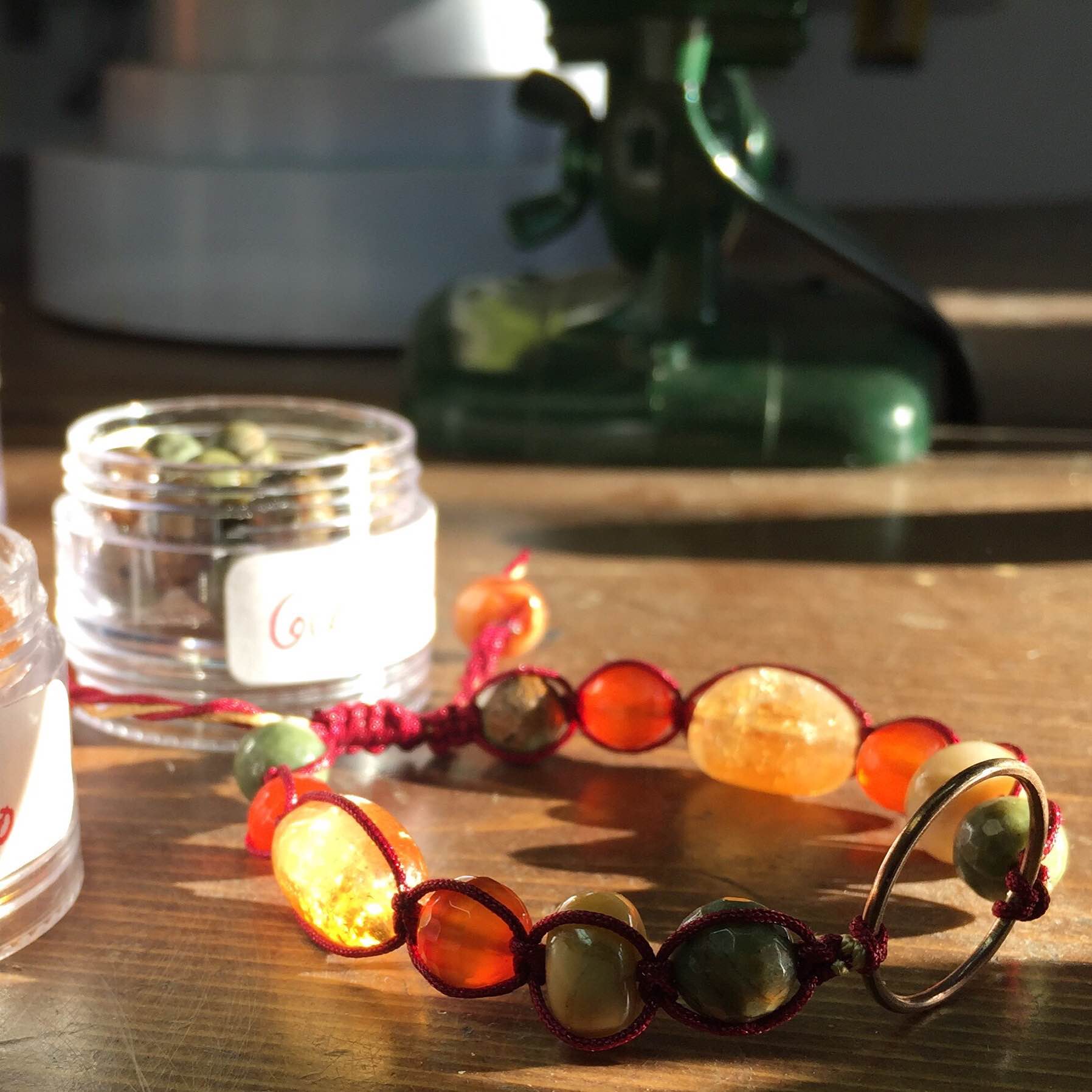During the fall of 2009, esteemed, New Yorker writer Adam Gopnik wrote a piece about cookbooks. The heart of the piece focused on Gopnik’s belief that one cannot ever really learn to cook from a cookbook because, in his words, “You’ll never do it well enough.” All my food writer friends cried in dissent. It created uproar in our food-writing world.
As it happens, I was invited by NPR’s Talk of the Nation to come on air and discuss Gopnik’s piece with him. While we were on the show, Gopnik’s major point was that you can only really learn from watching and that cookbooks are a disappointment because even when you follow a recipe, the final product may look nothing like the picture. His point was that you could only really learn from being with someone in the kitchen.
Well, watching someone riding a bike wont teach you how to ride. Getting on a bike will. And there in lies the point: to cook, whether by watching or by reading, will only happen when you perform the actual act – hold knife, cut vegetables, heat stove, etc. There are many types of cookbooks out there that help a reader try to accomplish this mission. The basic books, like Mark Bittman’s are where the intent is to teach the user fundamentals: how to boil an egg, what to do with asparagus, what exactly rhubarb tastes like. And from there we go up to books on techniques that focus on the art of doing one thing be it steaming or frying or baking. There are books that are full of essays and stories along with recipes. These document life more than just the food, many times.
Of course, I shared this all on air.
We ran out of time on the show and there were so many things I wanted to share. Years ago, I had helped an online food community start a free cooking school. We had several online classes – basically text with pictures, showing people how to make dishes. But do you know which class was one of the most successful? Teaching people how to use a knife – in text and pictures. Think about it.
And then there is my favorite story about one of my writing students and the value of cookbooks in our lives. They are so much more than just recipe repositories.
This student sent me an essay about struggling to make an “old family cookie recipe” for a cookie party because, it turns out, they had no family recipe for cookies. When I began to read the essay, my gut reaction was that perhaps the family did not cook explaining the lack of family recipes.
On the contrary, turns out Andrew R.’s family loved to cook. Except that they did not cook from their own recipes: they loved to cook together in the kitchen from cookbooks that his mother owned and adored. Andrew spent time in the kitchen with this parents and his brother, not cooking but loving his mother’s culinary creations. “My mother would cook from so many different books that I had developed a strong love of many different cuisines by the time I left home to be on my own,” he wrote. His family’s love of cookbooks goes beyond just cooking from them. They discuss the books and authors so much that a friend thought they were related to Rick Bayless!
He never cooked with his mother but began cooking in his college years. And yes, he learnt to do it all from cookbooks. They taught him how to cook, how to learn new techniques and how to think like a cook. When a certain recipe would show him how to make garlic, he would use that technique the next time he used garlic, for instance.
“Mom (a physics major in college) always told me and my brothers, “if you can do a chemistry experiment, you can cook from a recipe,” he wrote.
But in the spirit of being honest, I have to admit that I have loads of cookbooks that I love that I never cook from.
As my friend Jill says “ Cookbooks are like sex books, sometimes you just want to relax and read about it.”
UPDATE: This post was picked up by Serious Eats and the comments there are piling up as well.
UPDATE: Ruth Reichl responded to my tweet by posting an answer about it on her blog. Do read it.
THe discussion continues here with Tim Carman at the Washington CIty Paper and with Rebekah Denn at the Christian Science Monitor.




I think cookbooks teach a person their way around the kitchen, depending on the book. (Yes, How to Cook Everything, no Ad Hoc.) Once someone learns how much she doesn’t know, that’s where cooking with someone else helps so much: learning how to read a dish by how it smells, factoring in time differences based on your own oven, learning techniques that can help in presentation, etc.
Thanks for this, Monica. Is there a link to the show?
Of course- here you go – http://www.npr.org/templates/story/story.php?storyId=121057835
I always think of cookbooks as the basis for mad experiments. Then again, I know I can never really get my food just like the pictures so perhaps I’m just trying to spare myself any sense of failure! 😉
A few years ago, I realized that the only way I was going to have a regular taste of Filipino food was to make it myself. Unfortunately, all of my family are on the West Coast or back in the Philippines (I’m in Minnesota), so I had no one to ‘show’ me how to do it. Instead, I’ve had to rely on cookbooks and my own memories of the flavors of my favorite dishes. I think I’ve managed decently so far!
So, yes, I believe you can learn how to cook from a cookbook, and quite well, too, given enthusiasm and practice, but what I do miss the companionship of simply being and doing things with others.
I think that a combination of using a book and paying attention to the results that you are getting can teach you how to cook. A good cookbook, in my opinion, will tell you what things should look or taste like at a certain point, contain important information like, “since you’ll be serving this dish cold, you might want to season it more highly than you would if it were to be served hot, and keep that in mind as you are tasting it,” and, if possible, give you suggestions on how to make variations using the basic recipe. When I write a recipe, I try very hard to give guidelines as to how things should look and taste at critical stages so that the novice cook isn’t left wondering whether everything has gone wrong or if this is just a normal part of the cooking process.
While it’s always better to learn with someone else who is a good cook, I do think you can learn to cook from a book. In fact, I’ve recommended the Lavarene Practique as a little cooking school in a paper package to many people. Likewise, I’ve told readers to pick a good quality basic (not the word basic – Alinea is not a starter cookbook!) book such as a Canadian Living book to learn the basic techniques of the foods they like to eat. In my opinion, once you have down the methods and have mastered a few basic skills, you’ll be able to extrapolate and cook without a book most of the time.
Of course, not all people are book learners. So, if reading books makes a person insane, trying to learn to cook from one isn’t going to work. For those folks, video and classes and one-on-one are likely the best way to go.
I’ve tried *so many* new foods and techniques thanks to cookbooks. Vegetarian cuisine. Learning to cook roasts for meat-loving hubby. Macrobiotic and Japanese cuisine. My 11yo daughter is now beginning to enjoy reading them too — they are an excellent way to expand our culinary skills (with both the successes and ‘failures’)!
We read ’em in the bathtub, before bed, with breakfast … and even when trying to figure out what to make for dinner. Love ’em!
I think cookbooks are a great starting point for learning how to cook, especially if you didn’t have a relative to show you how to cook growing up, or if you want to learn to cook a special food. As a cookbook author, I love to imagine someone in the kitchen cooking and reading from my books. I also think you can learn a lot about cooking by writing a cookbook.;-)
As an author about to publish her first cookbook, I hope sure hope so! To a large extent, I learned from cookbooks, before working in the food biz & going to cooking school. But it all depends on what kind of learner you are — some folks are visual, others are hands-on/experiential and so on. A good cookbook is a guide, a reliable source of info & context, no matter the topic.
— Kim O’Donnel
I think it takes a certain sensibility to teach yourself to cook from books. you’ve got to be very aware. and you’ve got to store what you learn each time.
here’s my post on cookbooks that teach. Interesting that there seem to be so few books that aim to help people teach themselves to cook.
http://blog.ruhlman.com/2009/05/cookbooks-that-teach.html
It depends on the person reading it. You heard the story about the woman who had her eggs separated, 2 in the living room, 3 in the kitchen and 1 in the dining room
I love cookbooks and own lots and do cook from cookbooks, but I also had a mother who cooked a lot and I watched her.
My question is: What about the smell and other tactile senses of the food? You can’t get that from pictures in a cookbook. For Indian food, for example, I think it’s very helpful to have had some exposure to what the smell and look and even feel (for dough) ought to be at different stages of the cooking.
Cookbooks, like all books, are good medium of knowledge transfer. They are good reference points for starters or continued learning and experiment. The comparison with chemistry experiment and sex book are dead on.
Gopnik’s essay struck me as slightly bizarre, especially his complaint about the food not looking like the picture. That’s not the point! The point is how the food _tastes_! (I also thought it was weird that in his list of the kitchen doodads you get and then never use, he included a spice grinder!)
I can vouch for the fact that you can teach yourself to cook from cookbooks (and mags like Cook’s Illustrated). Yes, I was exposed to cooking as a kid, so I probably absorbed more than I realized, but when it came to really teaching myself, I just checked out a bunch of cookbooks from the library, and read and cooked.
But I think Ruhlman and Kim are right–you have to be that “type” of learner. Gopnik, I guess, is just not.
Great topic. I’m a cookbook lover, and like you Monica, I don’t cook from all the books I own. I just love to read them. But I do cook from a lot of them, and do believe that I learn from them. On the other hand, I grew up cooking with my Italian mother, and I’m sure that it helped me enormously to have that background once I started cooking and creating recipes on my own. There are all sorts of cookbooks for all kinds of cooks. I’m thinking about the Good Cook series by Time Life–very technical, lots of helpful pictures and illustrations. Then there’s Alice Waters’s books, which are vague on instruction and often don’t even give quantities. And yet I feel as if I’ve learned from both those types of books. I’ve written two books (almost done with #3) and I take care to write very clear, precise instructions, especially for complicated many-step recipes like lasagne alla Bolognese etc. But at a certain point a cook must start to trust him or herself and be willing to just do it. I can tell someone how to make pasta dough but until they actually try it–again and again until they get a feel for what the dough should feel like– they won’t really know. And, I also have to agree that it does help to watch a skilled cook at work. While working on my current project, about pasta, I visited lots of kitchens in Italy and watched wonderful cooks at work making pasta. Even though I grew up watching my mom make pasta I learned a lot from seeing how other cooks did it–each one a little differently. I guess I’m saying that there is no clear-cut answer here. The best way is probably by using a variety of sources–books, teachers, and you own intuition. As for cookbooks themselves, IMO the value of a good cookbook goes far beyond being merely an instructional text.
I think it depends–on the skills of the cookbook author to explain things, on the skills of the photographer to display recipe steps that aren’t easily explained in words.
Of course, there are plenty of cookbooks out there that explain nothing and assume extensive reader knowledge. There’s nothing wrong with that, it’s just that this is not the first cookbook a beginning cook should start with.
PS: I had to laugh when I read the comment about “if you can do chemistry than you can cook”–I believe the opposite is true too!
Dan
Casual Kitchen
I think you can learn your way around a dish using a cookbook. And you can pick up a lot of great tips, suggestions, and ideas. But to really learn from books, you have to cook often as well as repeatedly (the same dish) to understand how small things, like pan size, heat, humidity, can have big effects. Leaning the basics in a cooking class can help you immeasurably in the kitchen. I know when I was writing “The New Portuguese Table” http://leitesculinaria.com/the-new-portuguese-table , my editor and I had long discussions about who the book was geared to. What level of cooking skill would she have? That would determine how much and what type of material to include in a recipe–therefore not all books are created equal.
So bottom line, yes. But get thee to a basics cooking class, too.
I love cookbooks. Some in my collection are dog-eared and stained, some are like favorite novels I go back to every now and then. There are books I would put on my list of favorites that I have never actually cooked from. I recently had a friend who claims to “never” cook tell me she didn’t like cookbooks, because all the things she’d ever tried were big failures. I asked her what books she used, and she listed a gorup of chef-written, resturant-driven cookbooks she’s been given over the years. I had to tell her that of course she was frustrated – those books are geared toward a totally different audience. I loaned her a Barefoot Contessa book, she’s now bought them all and tells me she cooks all the time now.
I never cooked with my mom but was amazed to find, when I was college sophomore, that when I followed recipes that she wrote out for me I could produce pot roast just like hers. I began cooking Thai food from a book after I returned from a trip to NYC and ate my first Thai meal there; 12 years later, when I finally made it to Thailand, I was amazed to find that what I cooked at home tasted very much like what ate on Bangkok streets. And I learned to make a killer bucatini a’lamatriciana from L.R. Kaspar’s ‘Italian Country Table’ after returning from a trip to Italy where I was served a memorable version at a tiny family-run trattoria. You know what? That book version was within an eighth of an inch the spitting image/flavor of the one I enjoyed in Italy.
I’ve never taken a cooking class and though I’ve spent a lot of time in kitchens with home cooks I cook — pretty darned well, I’ll say with complete lack of modesty — many dishes/cuisines that I learned how to make from the pages of a book.
So no, I don’t agree with Gopnick (I snorted my way through much of that article).
But I do think learning to cook from books requires several things:
(1) basic kitchen skills and a baseline level of comfort in the kitchen
(2) confidence in yourself and the certainty that it is OK to fail because you can always try, try again
(3) an absolute drive or passion — whether it’s inspired by memories of something you’ve eaten and want to recreate, or an interest in a foreign culture that extends to cuisines, or a craving certain flavors, etc.
Great post!
Monica, you raise a lovely, oft-overlooked point. Depending on the person, of course, one can learn an unspeakable amount from reading and cooking from cookbooks. In addition to the requisite and desired techniques and tastes and transferrable skills that one takes away from a cookbook, we learn perspective. We learn to make one’s way through a recipe, a cuisine, a type of cooking, and we do so through the eyes of each cookbook author we encounter. One gleans how various authors see and smell and recall and really perceive a recipe, in all its fullness. From these individual and seemingly insignificant experiences we create a collection, an inheritance of sorts of experiences, choosing what resonates or relates to us in our kitchens in any given situation. Over the course of a lifetime spent learning from cookbooks, each collection we turn to time and again creates a little part of who we are as a cook.
Absolutely you can learn from books, particularly if you can follow directions and learn from your experience, good or bad. There are very few techniques that, imrho, require watching someone. Examples are pulling strudel dough, cutting fat into flour for pie crusts or biscuits, and pasta by hand.
The first time and the second time that I read Gropnik’s piece, I felt like it was a plate of mish-mash food. One that tried to say too many things yet not enough. Gropnik writes on page 82: “However we take cookbooks — grammatically or encyclopedically, as storehouses of craft or illusions of knowledge — one can’t read them in bed for many years without feeling that there is a conspiracy between readers and writers to obscure the ultimate point.” I did not and still don’t fully understand his aim in that closing section. Is he accusing authors of not forking over the truth about their recipes? Too much salt and fat? Well, my friends, that may happen with chef cookbooks, as the reality of restaurant techniques may frighten eaters and cooks. But we want to recreate those flavors so why not? It’s cheaper to cook at home and you can eat while in your pajamas.
Gropnik over generalizes as his above statement does not apply to cookbooks across the board. There are different genres of cookbooks and authors, and each has its aim. There are also many under-represented cuisines and techniques out there. How many Italian cookbooks does the public REALLY need? But yet the public yearns for more so let their needs be served. There are other needs that deserve to be fulfilled too, specifically those of the innumerable seemingly obscure topics that have yet to be spotlighted. Gropnik focuses on the usual suspects of western works.
David Leite’s “Portuguese Table” is a terrific example of how authors illuminate the cuisines and foodways of overlooked cultures. Regional Chinese cooking? I’d like to read about that in English! Bring it all on because I hunger for a very full banquet of cookbooks. I’ll devour that endless menu.
As a cookbook author, I don’t write about topics that are already well covered in the literature. That doesn’t make sense and doesn’t drive my mojo. I look for voids to fill and ways that I can contribute substantive knowledge. I explore approaches that inform and inspire. At core, I’m a teacher and communicator. For me, a cookbook is a great how-to manual and road map.
Given the amazing word count that the New Yorker provided, Gropnik’s piece didn’t deliver a comprehensive perspective on the nature of cookbooks.
i believe heston blumenthal basically says that he learned to cook from cookbooks and tasting food at fine restaurants
thanks
Interesting debate. I’d like to offer my 2 bits. I feel the only way one learns to cook is PRACTICE PRACTICE PRACTICE! How you learn, whether from a cookbook or watching someone is purely an individual inclination. You never get it spot on at the first go but then isn’t that the way with learning anything new. I’m sure most people use a combination. I find watching someone is more encouraging. No wonder most cookbook writers follow up their books with a TV series. Once your familiar and comfortable with cooking techniques, just reading a recipe might be sufficient to get it right. Several factors in addition influence your choice of method such as cultural nuances. If your trying out a new cuisine you do need a lot more familiarity with ingredients and techniques before you try your hand at it.
Of course, one can learn from a cookbook – assuming it is a good one. An entire generation of women emigrants to the American West learned from Mrs. Rorer. I learned from The Joy of Cooking, having failed miserably with the Betty Crocker Cookbook. But it IS important to note, that it was The French Chef and other TV shows that blew open the doors. Mastering The Art would not have sold like it did, had it not been for the “hands on” approach of the TV show. Do the Rombauers have an exhibit in the Smithsonian? No. The cerebral Cooks Illustrated makes its mark with the PBS show America’s Test Kitchen, complete with bow tie. That said, I don’t think we learn anything but intimidation from competition shows like “Top Chef” and its ilk.